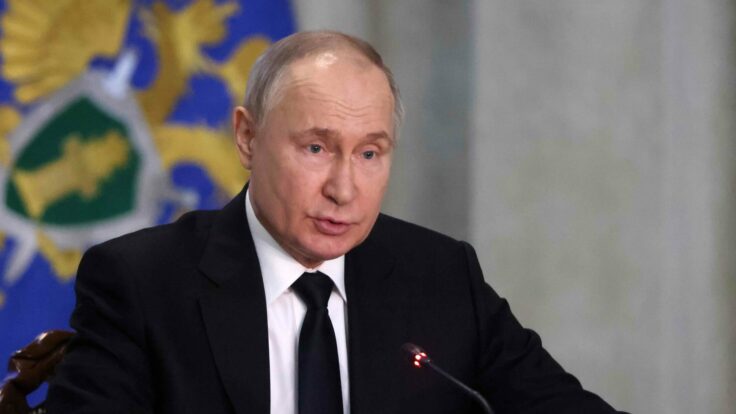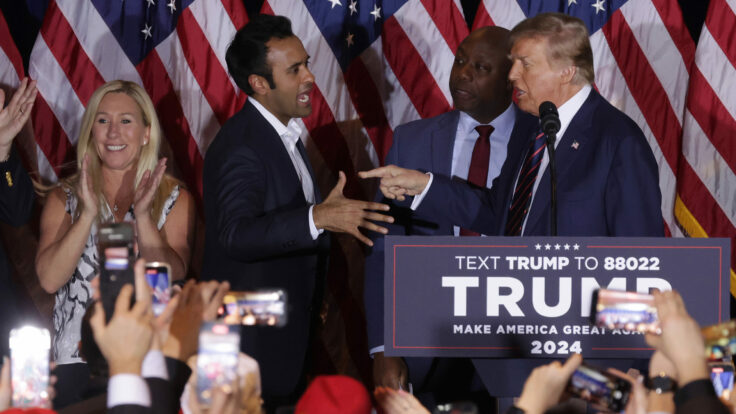On May 9, as the war for Ukraine thundered on far to the south, Vladimir Putin walked across Red Square with thousands of his subjects, each holding old black-and-white photos of their loved ones. It was part of the Immortal Regiment, a recently created tradition in which Russians all over the country—and the world—march with photographs of their ancestors who fought, and often died, in World War II. This year, as in years past, Putin carried a photo of a young man with bulging eyes and the uniform of a sailor. It was Vladimir Spiridonovich Putin, the Russian president’s late father, in a picture taken of him in 1932, when he was first drafted into the Soviet military, where he served as a submariner.
The Immortal Regiment was created by pro-Kremlin activists a decade ago, a kind of Putinist answer to the pro-democracy protest movement gripping the capital and other big Russian cities. The Regiment was yet another step in Putin’s long drive to bend the nation’s memories of the war into his political cudgel. Putin’s Russia had lacked an organizing ideology—it was no longer a communist state, nor was it a free-market, liberal democracy—and World War II, or the Great Fatherland War, as it’s known in Russia, provided something of a communal glue.

















